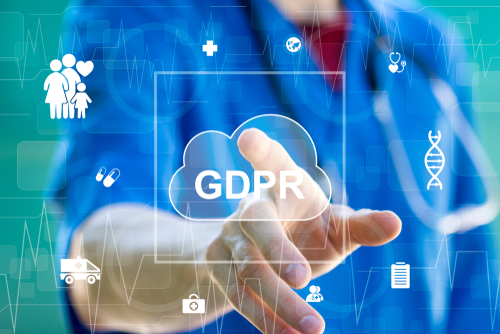The legal and financial consequences of non-compliance with the GDPR
The General Data Protection Regulation (GDPR), implemented by the European Union in May 2018, imposes strict requirements on companies regarding the collection, processing and protection of personal data. non-compliance to this regulation can lead to severe legal and financial consequences. This article examines in detail the current sanctions provided for by the GDPR and presents recent case studies to highlight the importance of complying with this regulation.

Types of sanctions
THE GDPR provides two levels of sfinancial sanctions for violations of its rules. These sanctions may be imposed depending on the severity of the violation.
-
- First level fines: For less serious offenses, fines can be up to €10 million or €2 million of the company's annual worldwide turnover, whichever is higher.
- Second level fines: For more serious offenses, such as violations of individual rights, failure to comply with fundamental data processing principles, or failure to comply with supervisory authority orders, fines can reach €20 million or €4 billion of the company's annual worldwide turnover, whichever is higher.
Other consequences
Besides the financial sanctions, there non-compliance with GDPR may lead to additional consequences such as:
-
- Damaged reputation: Negative publicity related to a data breach can seriously damage a company's reputation.
- Loss of customer confidence: Customers may lose trust in a company that does not adequately protect their personal data.
- Legal actions: Individuals whose data has been compromised can take legal action against the company.
- Obligations to remedy violations: Businesses may be forced to implement costly remedial measures to comply with GDPR.
Recent case studies of non-compliance
Google (2019)
In January 2019, Google was fined a record €50 million by the French Data Protection Authority (CNIL) for GDPR violations. The main reasons were a lack of transparency, clear and understandable information about data processing policies, and invalid consent for advertising personalization. This case highlighted the importance of providing clear information and obtaining explicit consent from users.
British Airways (2020)
In October 2020, British Airways was fined £20 million by the UK's Information Commissioner's Office (ICO). This fine was related to a 2018 data breach that compromised the personal information of more than 400,000 customers, including names, addresses, and credit card details. The ICO noted that the company had failed to take adequate measures to protect data from cyberattacks, highlighting the importance of data security.
Marriott International (2020)
Marriott International was also fined £18.4 million by the ICO in October 2020. This penalty followed a data breach that exposed the personal information of 339 million guests. The breach was initially discovered in 2018, but the attack dates back to 2014, indicating that Marriott failed to conduct the necessary security checks when acquiring Starwood Hotels, where the breach occurred. This case highlights the importance of due diligence in mergers and acquisitions.
H&M (2020)
In October 2020, the Hamburg Data Protection Authority fined H&M €35.3 million for GDPR violations related to illegal employee surveillance. The company had illegally collected and stored detailed information about employees' private lives, including details about their vacations, illnesses, and religious beliefs. This fine is one of the largest in employee data protection history, highlighting the need to respect employees' privacy rights.
Equifax (2019)
In 2019, Equifax was fined $575 million by the US Federal Trade Commission (FTC). While this case does not directly fall under the GDPR, it is relevant due to its global implications. The penalty followed a massive data breach in 2017 that compromised the personal information of 147 million people. While the penalty was US, Equifax would also have been subject to severe penalties under the GDPR had it been in effect at the time, highlighting the importance of global data protection compliance.
The importance of complying with the GDPR
Protection of personal data
THE GDPR aims to protect the personal data of citizens of the European Union. The non-compliance This means that companies are not respecting individuals' fundamental privacy rights. Protecting personal data is not only a legal obligation, but also a matter of respect and trust towards customers.
Prevention of sanctions
Businesses must comply with the GDPR to avoid hefty financial penalties and legal consequences. Fines can be substantial and, for some businesses, could threaten their financial viability.
Building customer confidence
Companies that comply with GDPR can build customer trust by showing that they take the protection of their personal data seriously. Transparency and accountability in data management can improve a company's reputation and attract more customers.
Improved data security
There GDPR compliance encourages businesses to adopt robust data security practices. By implementing appropriate security measures, businesses can protect data from breaches and cyberattacks, reducing the risk of financial loss and reputational damage.
Conclusion
There non-compliance with GDPR can lead to severe legal and financial consequences, including substantial fines, reputational damage, loss of customer trust, and legal action. Recent case studies show that even large companies can face severe penalties for non-compliance, highlighting the importance of complying with the GDPR. For businesses of all sizes, taking the necessary steps to comply with the GDPR is crucial, not only to avoid penalties, but also to protect individual rights and strengthen customer trust.








